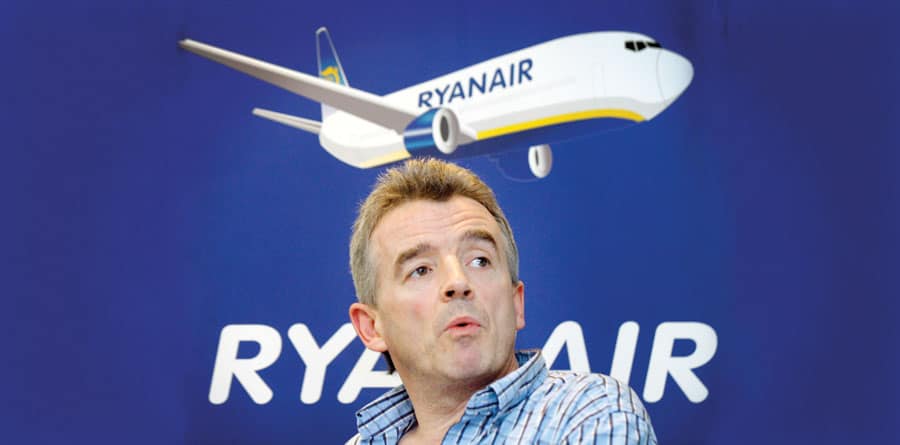Ryanair is a prime example of a domestic business that has had phenomenal success on an international stage.
Michael O’Leary is chief executive of the low cost airline Ryanair. Often accused of PR spin, he regularly makes the headlines. O’Leary has earned a fiery reputation for his maverick and no-nonsense management style based entirely on delivering results, which he has succeeded in doing since he took the helm in 1994.
The latest full-year results released in May of this year showed that Ryanair had achieved record profits of €503 million for last year but said that increased costs will make that figure difficult to repeat in this year. The airline said that full-year revenue increased by 19% to €4.33 billion but cautioned that costs also increased by 13%, primarily due to a 30% increase in fuel costs to €1.59bn. Fuel now represents 43% of Ryanair’s total operating costs compared to 39% in the previous year.
As a result of increasing costs, the low-cost carrier has been forced to increase its average ticket prices. On average, fares rose by 16% at Ryanair last year with total revenue per passenger increasing by 13%. It is perhaps a testament to the ubiquity of Ryanair however that, despite fare increases in the midst of a recession, passenger numbers also grew last year; traffic grew 5% to 76 million passengers, a number achieved despite the grounding due to costs of up to 80 aircraft late last year.
In recent times, much of the headlines in this country surrounding Ryanair have focused on the airline’s 26% stake in Aer Lingus. O’Leary purchased over 26% of the former state-owned airline in 2006, having mounted a takeover attempt worth approximately €1.5bn. His offer was not accepted, although his share has increased to just under 30%. In 2008, he tried yet again, in a €750 million bid, to purchase the airline, insisting that he would operate Aer Lingus and Ryanair as two completely separate companies. In answer to those who fear he would run a monopoly, he pointed out that Ryanair already has a monopoly in Shannon, Kerry, Stansted and Prestwick in Scotland.
According to O’Leary, in order for Aer Lingus to survive as an independent operator, it must make stringent adjustments to its cost base. The airlines vulnerability could see a complete takeover bid by Ryanair or as O’Leary predicts, whereby Ryanair will be requested by Aer Lingus to ‘rescue’ them.
Ryanair most recent attempt at a takeover of Aer Lingus was its €1.30 per share or €694m offer for the airline this summer. Ryanair published a 182 page offer document as part of the process within which O’Leary penned a letter to Aer Lingus shareholders outlining the reasons behind the timing of the latest offer and why it represents value for them. As part of the letter, O’Leary called on the support of the government for their approach,
“Since the 2006 offer, the Irish Government policy towards its 25% shareholding in Aer Lingus has changed,” O’Leary said. “When Aer Lingus floated in October 2006, the Irish Government retained a 25% shareholding for “strategic” purposes. As recently as 9 May 2012, the Irish Government confirmed that it “has decided that the State’s remaining shareholding in Aer Lingus will be sold at an appropriate time, but only when market conditions are favourable and at an acceptable price to be agreed by Government”. The Minister for Transport has previously indicated that the Government will not dispose of its stake for less than €1 per Aer Lingus share. The cash offer does not require acceptance by the Irish Government in order to be successful, although Ryanair believes that the offer represents the only means by which the Irish Government can ensure that Aer Lingus will continue to be owned and managed in, as well as focused upon, Ireland.”
O’Leary is originally from Mullingar and was educated at Clongowes Wood College, Co Kildare. He studied business at Trinity College, Dublin, graduating in 1983 with a second class honours degree. He worked as a tax consultant with KPMG (Stokes Kennedy Crowley), and ran two small retail outlets before becoming financial advisor to Tony Ryan at his small and troubled airline Ryanair. He worked as deputy chief executive of the airline between 1991 and 1994, and was then promoted to chief executive of Ryanair.







